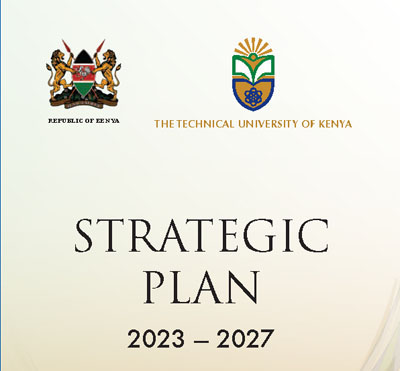A comprehensive needs assessment in the Nyando and Lake Victoria, has been completed.
The assessment was conducted by researchers from the TU-K School of Physics and Earth Sciences, Department of Geosciences and the Environment, led by Dr. Evance Mbao under the joint research project titled “Sustainability of Flood Plains Supported Livelihoods in the Face of Climate Change in East Africa (Kenya and Rwanda)-PRO-SFP-EA.”
The project was jointly developed with TU-K, Kisii University, Chuka University in Kenya; University of Rwanda in Rwanda; and University of Innsbruck in Austria.
The two-year joint project seeks to promote climate-smart agriculture and integrated water resource management practices through emphasis on capacity development of young scholars and training of farmers in the Lake Basin and floodplains of Kenya and Rwanda.
The project’s principal investigator, Dr. Evance Mbao, a lecturer, at the Department of Geosciences and the Environment, and Prof Rainer Kurmayer from University of Innsbruck, Austria, visited Nyando floodplains and Lake Victoria from 10th to 14th November 2024. During this period, they conducted water quality sampling, taking samples for phytoplankton identification, cyanotoxins analysis, DNA metabarcoding and chlorophyll and partnered with the Kenya Marine and Fisheries (KEMFRI) for analysis.
In addition to the two, other researchers including Ms Lydia Awuor, an Environmental Resource Management Student, Dr Jane Oteki a lecturer, at the Department of Geosciences and the Environment (TU-K), Dr Njogu (Chuka University) and Dr Fabrice Musana (Rwanda University) analysed agricultural practices, and met farmers in the Nyando floodplains, gathering insights through community surveys.
In an interview with TUKNEWS, Dr. Mbao said that following the completion of the needs assessment in Kenya, a similar exercise will be done in Rwanda next year in February.
“We have dealt with the Kenyan part. We will move to Rwanda, undertake similar activities and harmonise the information. Then we will write a report, and request for further funding so that we do the actual implementation of the project,” said Dr. Mbao.
He added that through the project, the researchers seek to evaluate and improve water quality to support sustainable agricultural practices. Furthermore, the team seeks to promote adaptive farming techniques, by encouraging crop diversification and drought-resistant species.
“We want to train farmers to diversify the crops they are growing because right now farmers are mainly growing rice, but following the needs assessment, my team is proposing drought-resistant fruits,” said Dr. Mbao.
“We also want to train them on climate-smart agriculture and irrigation, we saw that they are now depending on a that supplies them with water, we will be looking at the water quality, to find out the types of fish to put in the fish farms,” he added
He also stressed that the project was keen on involving students, particularly post-graduate students so that they can gain practical experience in environmental and agricultural sciences.
The project received a grant of EUR 34,000 (Sh7.67 million) from OeAD-GmbH-Austria’s Agency for Education to support inception and needs assessment activities.

